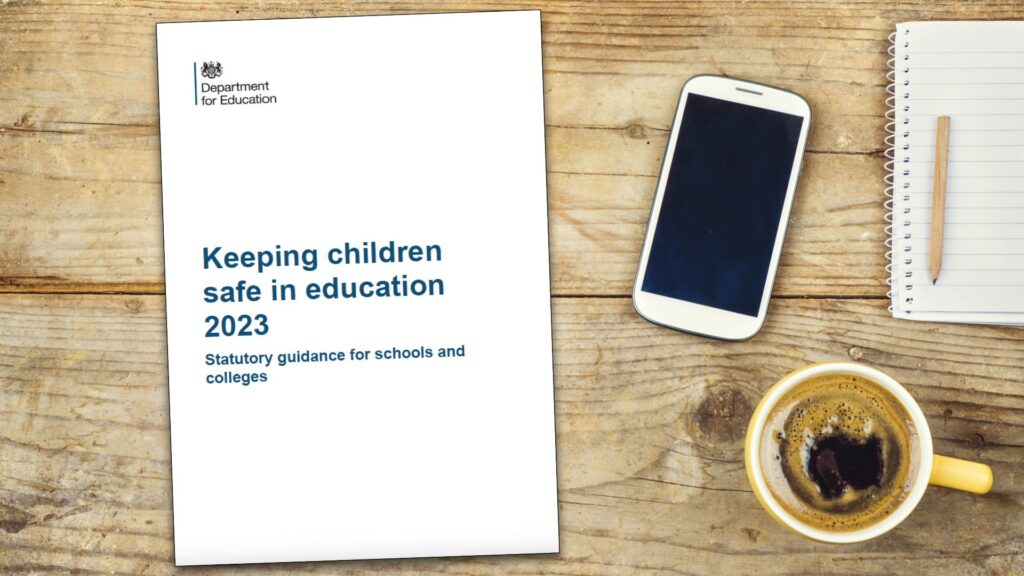What are the key changes to Keeping Children Safe in Education (KCSIE) 2023?

Each year it is imperative that every member of staff that works with children reads Part 1 of KCSIE. This year is no different. Every year there are updates which reflect trending issues and concerns. To help you navigate these changes we have summarised the key changes for you.
What do all staff need to know?
‘All staff should receive appropriate safeguarding and child protection training (including online safety which, amongst other things, includes an understanding of the expectations, applicable roles and responsibilities in relation to filtering and monitoring – see para 141 for further information) at induction. The training should be regularly updated. In addition, all staff should receive safeguarding and child protection (including online safety) updates (for example, via email, e-bulletins, and staff meetings), as required, and at least annually, to continue to provide them with relevant skills and knowledge to safeguard children effectively.’
Overview of the key changes
The key points are as follows:
- Filtering and monitoring systems should be reflected in training and safeguarding policies
- Schools should inform shortlisted candidates that online searches will be carried out
- Guidance has been added on managing allegations against organisations or individuals hiring out the school premises
- Schools no longer have the obligation to preserve records for the Independent Inquiry into Child Sexual Abuse (IICSA)
- Forced marriage guidance has been updated to reflect legal changes in February 2023
- A distinction has been made between children missing education and children absent from education
What else do you need to know?
1. Filtering and Monitoring:
The updated guidance makes it clear that all staff should receive training on the expectations, applicable roles and responsibilities in relation to filtering and monitoring.
The designated safeguarding lead should take lead responsibility for understanding the filtering and monitoring systems and processes in place.
Information on school child protection policies should include information on appropriate filtering and monitoring on school devices and school networks.
The guidance signposts the Department for Education’s new filtering and monitoring standards (DfE, 2023b), which support schools to have effective systems in place. Schools and colleges should consider meeting the DfE’s Cyber security standards for schools and colleges (DfE, 2023c).
2. Children absent from education
The updated guidance highlights that being absent, as well as missing, from education can be warning sign of a range of safeguarding concerns, including sexual abuse, sexual exploitation or child criminal exploitation.
3. Recruitment
Updated guidance states that schools and colleges should inform shortlisted candidates that online searches may be done as part of pre-recruitment checks.
4. Individuals and organisations using school premises
Updated guidance includes information on responding to allegations relating to incidents occurring when an individual or organisation uses a school’s premises. As with all safeguarding allegations, schools should follow their safeguarding policies and procedures, including informing the Local Authority Designated Officer (LADO). A full list of changes can be found in Annex F of the Keeping children safe in education 2023 (DfE, 2023a).
5. Other elements you need to be aware of
- Schools no longer have the obligation to preserve records for the Independent Inquiry into Child Sexual Abuse (IICSA)
- Forced marriage guidance has been updated to reflect legal changes in February 2023
- A distinction has been made between children missing education and children absent from education
To get a full training session for Part 1 and the related updates, check out the Learn KCSIE 2023 course.







Responses